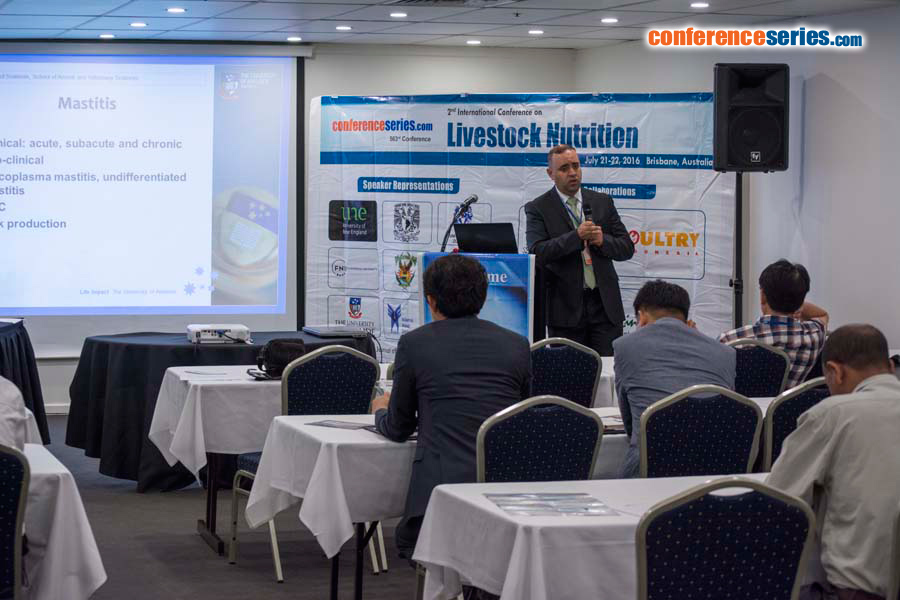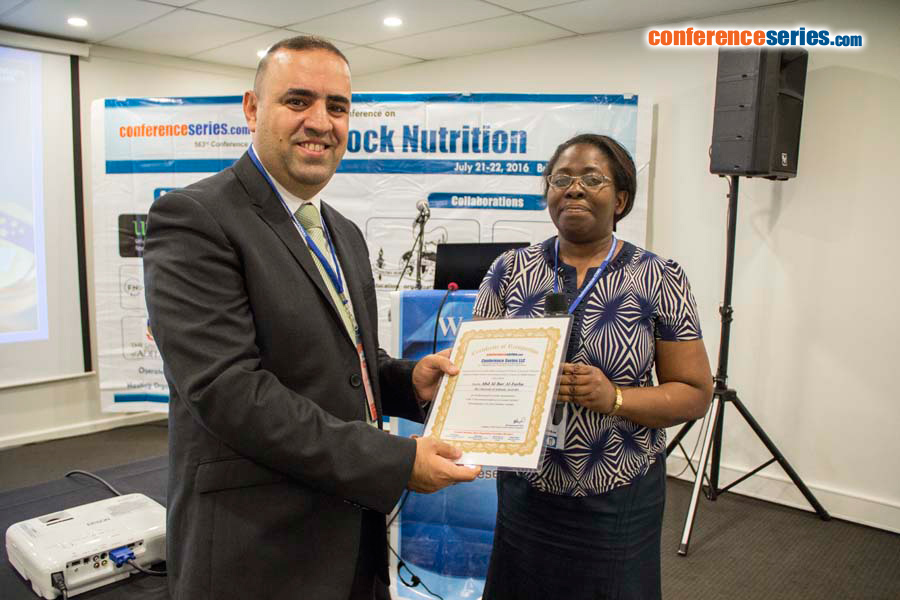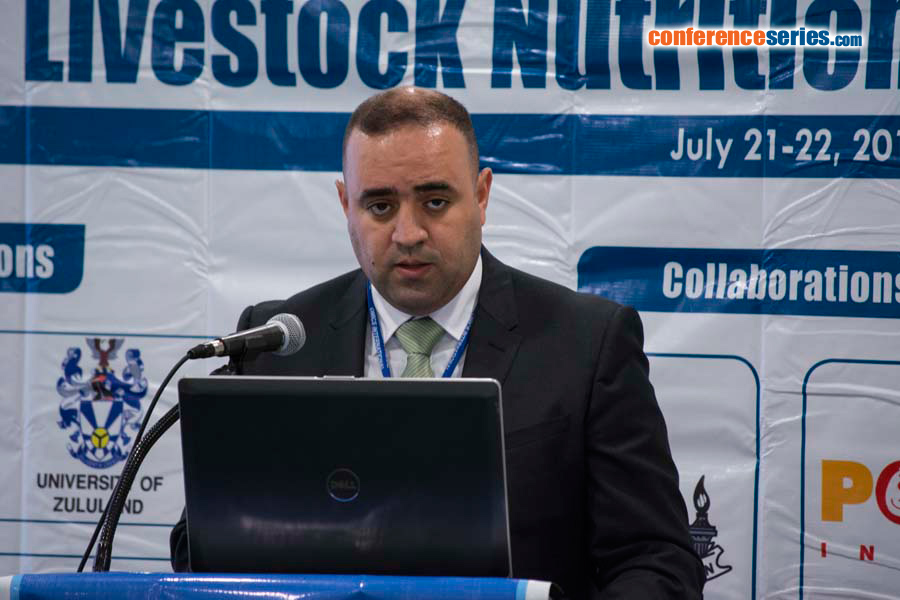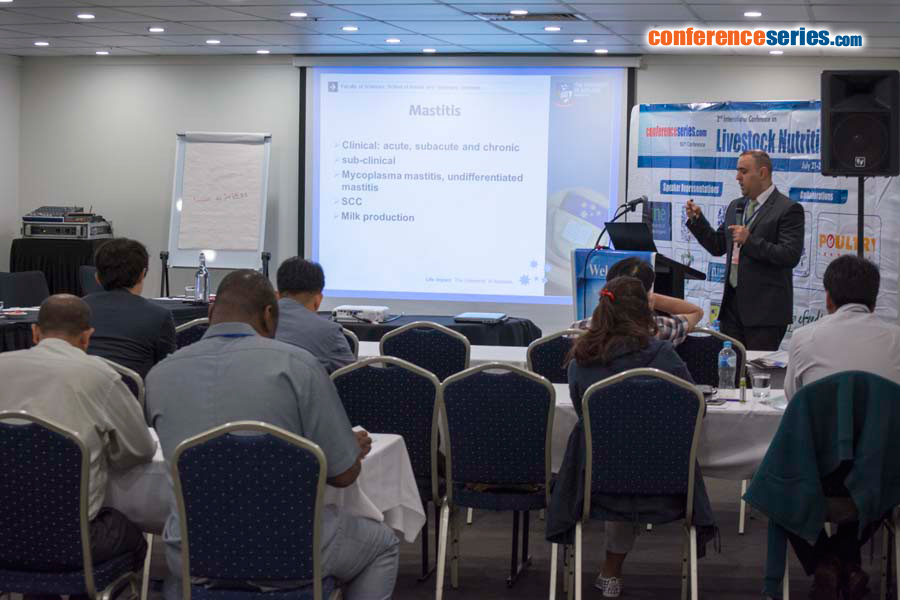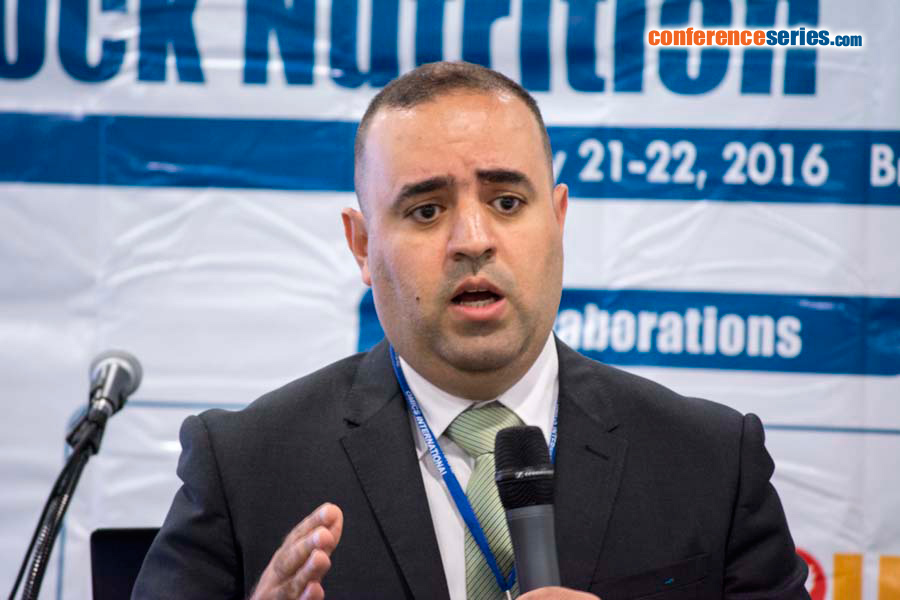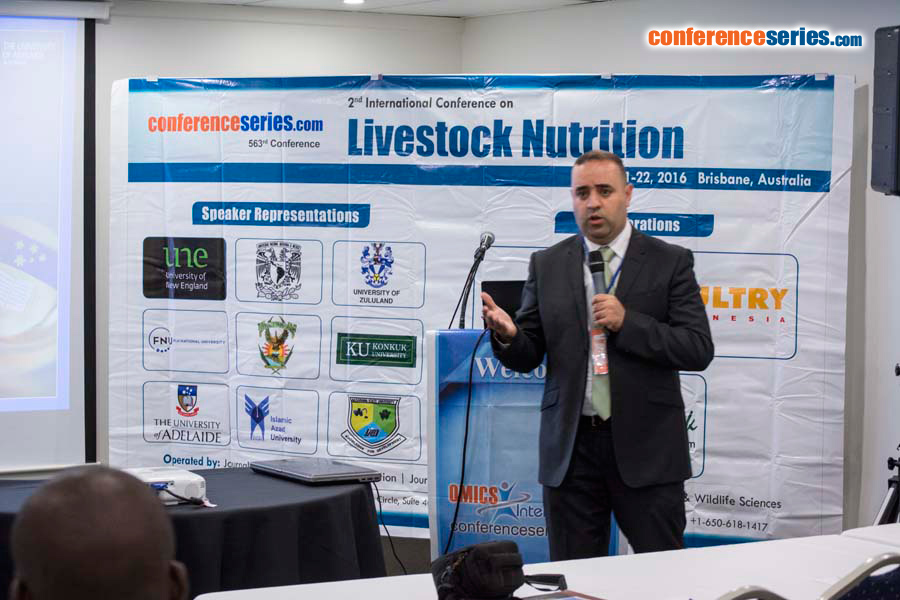
Abd Al-Bar Al-Farha
The University of Adelaide, Australia
Title: Subclinical mastitis caused by Mycoplasma-like bacteria in in dairy cattle in South Australia
Biography
Biography: Abd Al-Bar Al-Farha
Abstract
The elevation of somatic cell counts SCC in affected quarters reflects the possibility of infection and is the standard method to discriminate between healthy and mastitis-infected cows. A total of 368 milk samples at cow level were collected from a single dairy farm located near Mount Gambier, South Australia. The farm had a history of chronic mastitis with poor response to antimicrobials and an increasing number of cows with high SCC. Most cows appeared clinically normal at the time of sample collection. A conventional microscopic culture method was used to detect Mycoplasma spp. Individual cow yield production parameters (e.g. volume, fat and protein percentage) and SCC for sampled and non-sampled cows was obtained by means of herd testing information. The effect of mastitis (Mycoplasma spp or undifferentiated was compared to the rest of the herd (assumed to be without mastitis) using analysis of variance (ANOVA). The SCC showed significant difference between sampled cows and the remainder of the herd. However, no significant difference was observed between cows with Mycoplasma spp. caused or undifferentiated mastitis. Milk production was significantly affected being 33.5±0.2 and 29.9±0.5 L/cow/day in cows with mastitis and the rest of the herd. The non-significant difference observed between Mycoplasma spp. induced mastitis and undifferentiated mastitis in this study, likely reflected the similarity in the influence of these pathogens on SCC. Correspondingly, milk yield was similarly affected by Mycoplasma spp.-like bacteria and undifferentiated pathogens. These findings point the importance of the detection of these bacteria amongst other common mastitis pathogens.
Speaker Presentations
Speaker PDFs
Speaker PPTs Click Here


